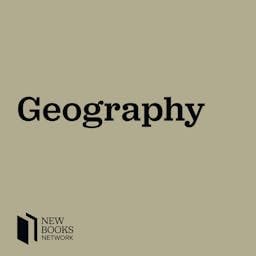Spaces of Anticolonialism: Delhi's Urban Governmentalities (U Georgia Press, 2025) is the first book-length account of anticolonialism in Delhi, as the capital of Britain's empire in India. It pioneers a spatial governmentality analysis of the networks, mobilizations, and hidden spaces of anticolonial parrhesia, or courageous speech and actions, in the two decades before independence in 1947. Reading across imperial and nationalist archives, newspapers, memoirs, oral histories, and interviews, Stephen Legg exposes subaltern geographies and struggles across both the new and old cities, which have traditionally been neglected in favor of the elite spaces of New Delhi. Presenting the dual cities as one interconnected political landscape, Legg studies Indian National Congress efforts to mobilize and marshal support between the mass movements of Civil Disobedience (1930-34) and Quit India (1942-43). The book's six chapters compare the two movements in terms of their public spaces of nonviolent anticolonialism, their problematization by violence, and their legacies. This bottom-up analysis, focused on the streets, bazaars, neighborhoods, homes, and undergrounds of the two cities, foregrounds the significance of physical and political space; it highlights the pioneering role of women in crafting these spaces; and it exposes the microtechniques that Congress used to encourage Gandhi's nonviolence and to tolerate its testing in the face of the rising popularity of the radical left. Legg's rereading of Michel Foucault's final lectures on parrhesia produces a bold new approach to questions of postcolonialism, resistance, and South Asian governmentalities. This allows anticolonialism to be read not as an outside but as a coherent and bottom-up project of self-transformation and space-making that was elite coordinated but whose sovereignty lay with a disobedient and not always nonviolent public. This book provides an innovative and restive historical geography of spaces of anticolonialism in the capital of contemporary India's 1.4 billion people. Stephen Legg is Professor of Historical Geography at University of NottinghamSaumya Dadoo is a Ph.D Candidate at MESAAS, Columbia University. Learn more about your ad choices. Visit megaphone.fm/adchoices Support our show by becoming a premium member! https://newbooksnetwork.supportingcast.fm/geography
Show More
Show Less
 Feb 21 20261 hr and 7 mins
Feb 21 20261 hr and 7 mins Feb 20 20261 hr and 3 mins
Feb 20 20261 hr and 3 mins 1 hr and 1 min
1 hr and 1 min Feb 8 202654 mins
Feb 8 202654 mins Feb 5 20261 hr and 7 mins
Feb 5 20261 hr and 7 mins 45 mins
45 mins 1 hr and 10 mins
1 hr and 10 mins Jan 23 202648 mins
Jan 23 202648 mins
